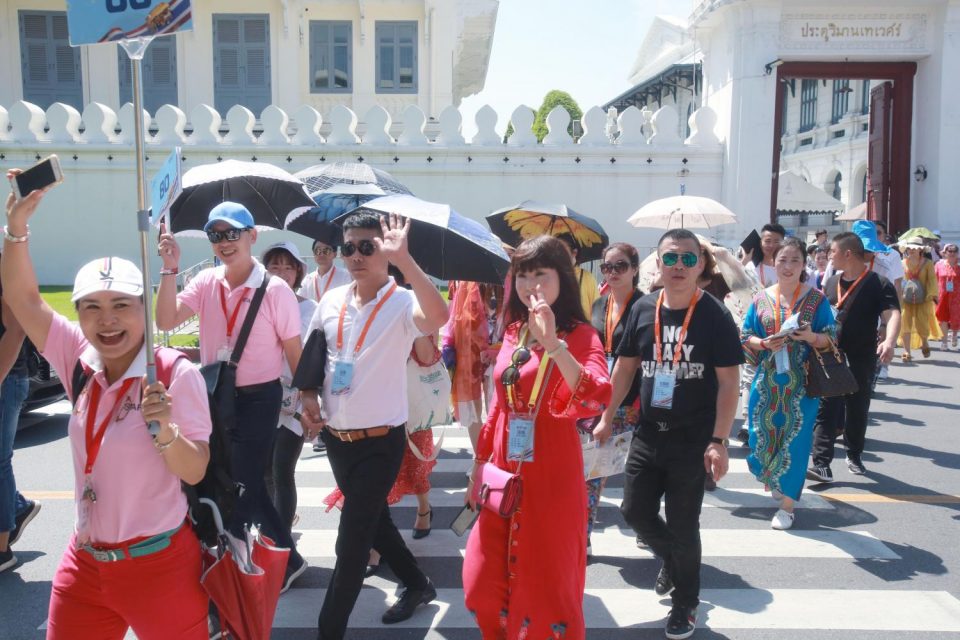Chinese tourists expect to resume their travels in April as new coronavirus infections subside, while Thai tourism officials aim to apply a safety and health administration programme to help operators upgrade their ability to deal with the pandemic.
Outbound tour operators in China have informed partners in Thailand that two provinces, Zhejiang and Jiangsu, have lifted travel restrictions but citizens are likely to venture out within their own provinces first, said Yuthasak Supasorn, governor of the Tourism Authority of Thailand (TAT).
Mr Yuthasak said operators in China expect most mainland residents to start taking domestic trips in April before resuming outbound trips later.
“This is the critical point we have to discuss,” he said. “China has passed over 45 days of virus containment. Chinese tour operators are desperate to restart business. If at that time Thailand is still an unsafe place for travel, we’ll lose the opportunity.”
While the government prepares measures to cope with the spread of the coronavirus, the TAT will work with the private sector to prepare a safety and health administration programme.
The TAT and Public Health Ministry are implementing regulatory outlines to raise the cleaning and hygiene standards of tourism services such as attractions, hotels and restaurants.
The programme aims to win the confidence of tourists as they increasingly prioritise health and safety issues when choosing a destination.
The five TAT offices in China have been assigned to monitor the safety manuals and practices of tourism attractions in the mainland as case studies for assuring consumer confidence.
After getting results, the TAT will summarise them to the Public Health Ministry and come up with complete guidelines. The TAT will seek cooperation from state agencies to give incentives to operators who commit to keeping their employees or creating more job opportunities upon joining the programme.
Mr Yuthasak said tourism businesses are in agreement on the initiative. The industry will kick off with a big cleaning nationwide once Thailand has the virus contained.
“The behaviour of global tourists will totally change because of the coronavirus pandemic,” he said. “The TAT has a role in promotion, but if the products we sell are not good enough to meet tourists’ expectations, it’s worthless.”
On Feb 16, Singapore launched the SG Clean campaign as a strategy to improve personal and public hygiene in light of the outbreak.
The lessons from the pandemic are also shaping the TAT’s marketing plan for 2021, which is in the drafting process.
Mr Yuthasak acknowledged that Thailand could take many years to return to 40 million tourists, as the agency has set growth at just 8% for 2021 and has already shifted focus from quantity to quality.
The global crisis has compelled the TAT to ramp up online marketing and set up virtual trade shows instead of joining tabletop-only sales events.
In the 60 years the TAT has operated, the coronavirus pandemic has proved the most difficult challenge, even when compared with incidents like tsunamis and floods, said Thanet Phetsuwan, deputy director for communication and marketing at the TAT.
The virus is not only hitting Thai tourism but is also leaving a lasting impact on the entire value chain of the global tourism industry, he said.




